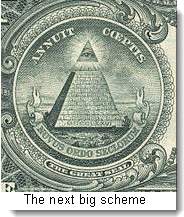The Economic Populist
Speak Your Mind 2 Cents at a Time
Most Popular
Is News Corp Finished - Senator Rockefeller Tells Feds to Investigate Fox Hacking of 9/11 Victims
- 61603 reads
4th Quarter GDP Grew at 2.9% Rate on Increased Inventories, Personal Services, and Government
- 118888 reads
Corporations Pay No State Taxes Either
- 22504 reads
Subprime meltdown over; now comes the bad news
- 121324 reads
US oil supplies at a 36½ year low, SPR at a 39 year low; oil+products supplies at an 18½ year low
- 254261 reads
March global oil surplus at 17.7 million barrels per day; 2nd qtr surplus to be at 6.2 million bpd despite OPEC-led cuts
- 129539 reads
What is in The Economic Stimulus Bill of 2009?
- 88027 reads
User login
Poll
Is News Corp Finished - Senator Rockefeller Tells Feds to Investigate Fox Hacking of 9/11 Victims
- 61603 reads
4th Quarter GDP Grew at 2.9% Rate on Increased Inventories, Personal Services, and Government
- 118888 reads
Corporations Pay No State Taxes Either
- 22504 reads
Subprime meltdown over; now comes the bad news
- 121324 reads
US oil supplies at a 36½ year low, SPR at a 39 year low; oil+products supplies at an 18½ year low
- 254261 reads
March global oil surplus at 17.7 million barrels per day; 2nd qtr surplus to be at 6.2 million bpd despite OPEC-led cuts
- 129539 reads
What is in The Economic Stimulus Bill of 2009?
- 88027 reads
The Golden Rule
- 1874876 reads
Will the NY Attorney General Bring Doomsday Charges Against Wall Street? If So, How Long Will He Survive?
- 1262750 reads
New York Post Claims Census Falsifies Unemployment Figures
- 1010949 reads
VAT or Value Added Tax is Getting a Look in D.C.
- 425055 reads
How Many Jobs Are Needed to Keep Up with Population Growth?
- 411852 reads
The war on the middle class
- 389123 reads
U3 and U6 Unemployment during the Great Depression
- 376793 reads
House discusses 401k/IRA confiscation
- 366094 reads
Tax Cuts for the Rich Do Not Generate Jobs
- 315995 reads
.




Recent comments